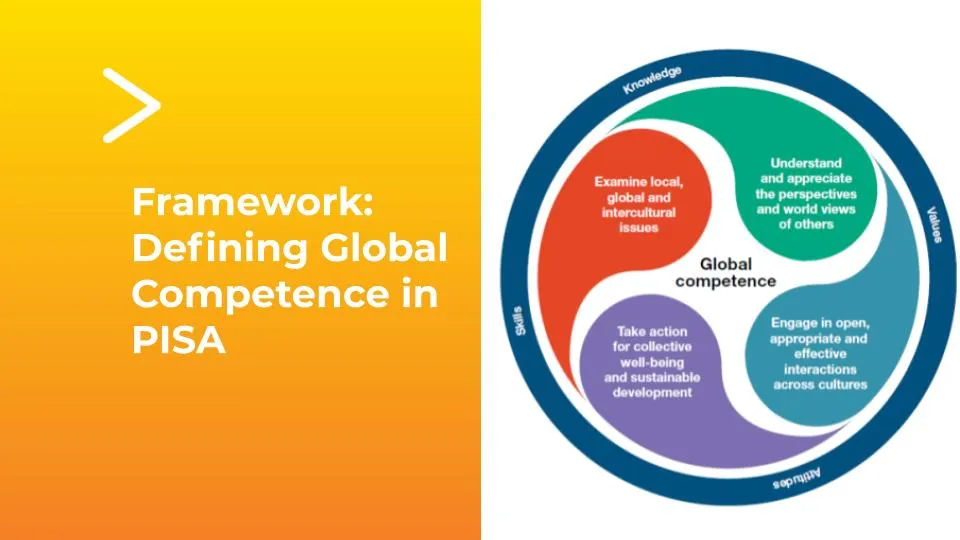How education systems are—or are not—helping learners develop global competencies in the era of COVID-19
by Ana Caroilna Cassiano, Head of Educator & School Relations, AFS Intercultural Programs
“In the COVID-19 crisis, empathy has been more important than ever in my day to day work: not only when dealing with patients but also in my interactions with my colleagues and the entire medical team,” said Dr. Carla Bolívar Quintero, a primary care physician working on the frontlines of the COVID-19 pandemic in Chile.
Carla, who is also an AFS alumna, shared these reflections at a recent webinar organized by the AFS Center for Intercultural Learning and Global Competence Education. She said she considers her global skills—including the ability to adapt, be resilient, and communicate effectively—crucial in her line of work, and even more important today.
The current crisis reinforces Dr. Bolívar Quintero’s conclusions: these “soft skills” are no longer optional; global competencies are necessary 21st century skills. And 96% of educators attending the webinar agreed that intercultural and global competence are very important in the post-pandemic world.
Dr. Bolívar Quintero was joined by two other experts and AFS’s head of educator relations, Ana Carolina Cassiano, to discuss what the COVID-19 crisis suggests about the need for global competencies and how today’s education systems are—or are not—helping learners develop these.

Higher Ed & Global Competence
Dr. Darla Deardorff of Duke University and the Association of International Education Administrators (AIEA), highlighted two emerging trends related to the pandemic and global competence development:
- Reemerging prejudices. There is a significant concern about the growing discrimination and xenophobia, especially towards people of Asian descent. Educators urgently need to address such instances of bias.
- Digital alternatives. Universities are looking into virtual exchanges, not as a substitute for physical exchange, but as a way to continue promoting intercultural learning and fostering key global competencies such as empathy, active listening, curiosity, respect and flexibility.
Assessing Global Competence in General Ed
Mario Piacentini of the Organisation for Economic Co-operation and Development (OECD) shared that in 2018, the OECD’s Programme for International Student Assessment (PISA) collected data from 56 countries as part of their Global Competence Assessment. One of the questions that students were asked was: How informed are you about global health, e.g. epidemics? Piacentini emphasized that this question relates to one of the key dimensions of global competence: the ability to examine local, global and intercultural issues.
The results of this PISA test will give us valuable international data on whether students can use their background knowledge and cognitive skills to critically analyse and respond to new information on global issues or culturally diverse people.
The 2020 AFS Global Conference on 22 and 23 October 2020 will host the virtual global launch of the results of the PISA’s 2018 Global Competence Assessment and explore their implications for students, educators, policymakers and other education stakeholders. Sign up to join us to learn more about how today’s school systems help learners develop these and other needed competencies. The urgency for education systems to prepare our students for an interconnected world will remain beyond the COVID-19 crisis.

AFS’s response & new offerings
Earlier this year AFS repatriated thousands of students whose study abroad programs ended early due to the COVID-19 pandemic. AFS deployed a special edition of the research-backed AFS Global Competence Certificate (GCC), to provide students with self-paced learning modules, online live sessions mediated by qualified facilitators, and a global forum to connect with other AFS study abroad students. Over 5,800 students are using the tool, which AFS made available to them at no cost.
For the remainder of 2020 and beyond, AFS will be launching innovative, impact-driven new AFS programs. In our flagship high school exchange programs, this “upgraded” experience is the culmination of a multi-year project undertaken by AFS, in partnership with leading global design firm IDEO and the University of Pennsylvania (Penn) Center for Social Impact Strategy (CSIS). Some of the new program features include a focus on helping students measure and articulate the profound personal growth they experience while abroad, providing students with tools for social impact, so that students can pilot social impact projects and be better equipped to become Active Global Citizens.
In addition to this, AFS launched a new AFS Global You Adventurer program. This new, all virtual peer-learning program for 14-17 year olds worldwide, will provide a new way for teens to connect internationally while building their global skills and taking social action. This includes learning how to be part of a globally-connected local community, identifying and appreciating the strengths of diversity, building and practicing empathy, and how to take action when encountering inequalities. The next program cohort starts on July 7, 2020. Find out more.